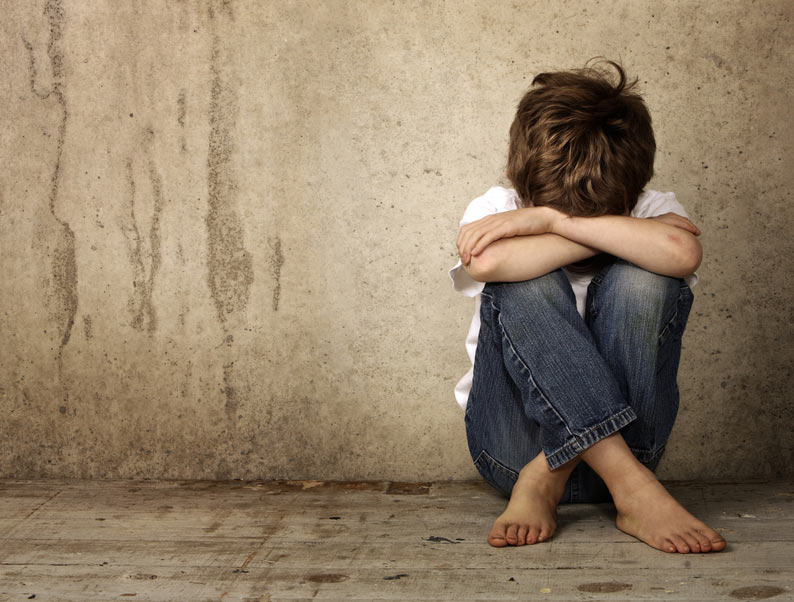Bedwetting: Causes & Treatment

Bedwetting, also called nighttime incontinence or nocturnal enuresis, is a very common problem with young children. In the United States, 5 million to 7 million children age 6 and older wet the bed, according to the National Kidney Foundation. Generally, bedwetting isn’t a sign of a medical condition or other problem in children under 7, according to the Mayo Clinic. This is because young children continue to develop bladder control long after potty-training.
Causes of Bedwetting
For most children, bedwetting is caused by having a small bladder. The bladder fills up overnight and must be emptied more frequently than an older person’s larger bladder. According to Nationwide Children's Hospital, a child’s bladder can fill up two to three times per night. If the nerves that tell the child to wake up when the bladder is full are not fully mature, then the child may not wake up to urinate in the bathroom.
Some children are more prone to bedwetting. Boys often take longer than girls to grow out of bedwetting, said Dr. Charles E. Crutchfield III, a clinical professor of dermatology at the University of Minnesota Medical School and medical director at Crutchfield Dermatology.
Children who have ADHD or a family history of bedwetting are also more likely to be bedwetters. If a parent has a history of bedwetting, their child has about a 30 percent chance of having the same problem, according to the National Institute of Diabetes and Digestive and Kidney Diseases.
Other causes of bedwetting include:
- Emotional and family problems
- Deep sleep
- Stress
- Constant constipation (the muscles that control defecation are also used for urination)
- Urinary tract infections
- Hormonal imbalances
- Diabetes
- Structural abnormalities of the bladder, kidneys and urination system
- Sleep apnea
- Toilet training too early
When to be concerned
Parents should consult with their pediatrician if the child is still wetting the bed after the age of 7, or if the child seems to have successfully stayed dry for several months and then starts wetting the bed. Parent should also seek medical attention for their child if the urine is pink or red, the child experiences unusual thirst, the child snores or if the child has hard stools, according to the Mayo Clinic.
Bedwetting in adults
About 1 in 50 young adults wets the bed, according to the National Kidney Foundation. The three most common causes of bedwetting in a young adult are:
- a problem waking up to the sensation of a full or contracting bladder
- making too much urine overnight
- a bladder that acts small
An assessment with a specialist can help treat the problem. An assessment usually involves a physical exam and a urinalysis. Moisture alarms or medications are the most common treatments.
How to handle normal bedwetting
Most children outgrow bedwetting without intervention. According to Nationwide Children's Hospital, 99 percent of children grow out of bedwetting by age 15. If there’s a family history, the child will probably stop bedwetting at around the same age that the parent did, according to Crutchfield.
Parents can approach a bedwetting problem by creating a bedtime game plan.
Some ideas include:
- Have the child pee right before bedtime.
- Have the child use the restroom at the beginning of the bedtime routine and right before crawling into bed.
- Set alarms during the night to wake the child for bathroom breaks.
- Make sure that the child stays hydrated throughout the day so that they aren’t thirsty at bedtime.
- Prevent the child from drinking any liquids close to bedtime.
- Have the child avoid caffeine since it can stimulate the bladder.
- Do not punish or scold since this stress can make the problem worse.
If the child matures and the problem does not go away, the child’s pediatrician may prescribe medications that can slow the production of urine, increase the size of the bladder or reduce bladder restrictions. Some common treatments include desmopressin acetate (DDAVP), imipramine and anticholinergic drugs, such as oxybutynin (Ditropan) or hyosyamine (Levsinex). Imipramine has been found to be effective for 10 to 50 percent of patients, according to The National Kidney Foundation.
Additional resources
Sign up for the Live Science daily newsletter now
Get the world’s most fascinating discoveries delivered straight to your inbox.











